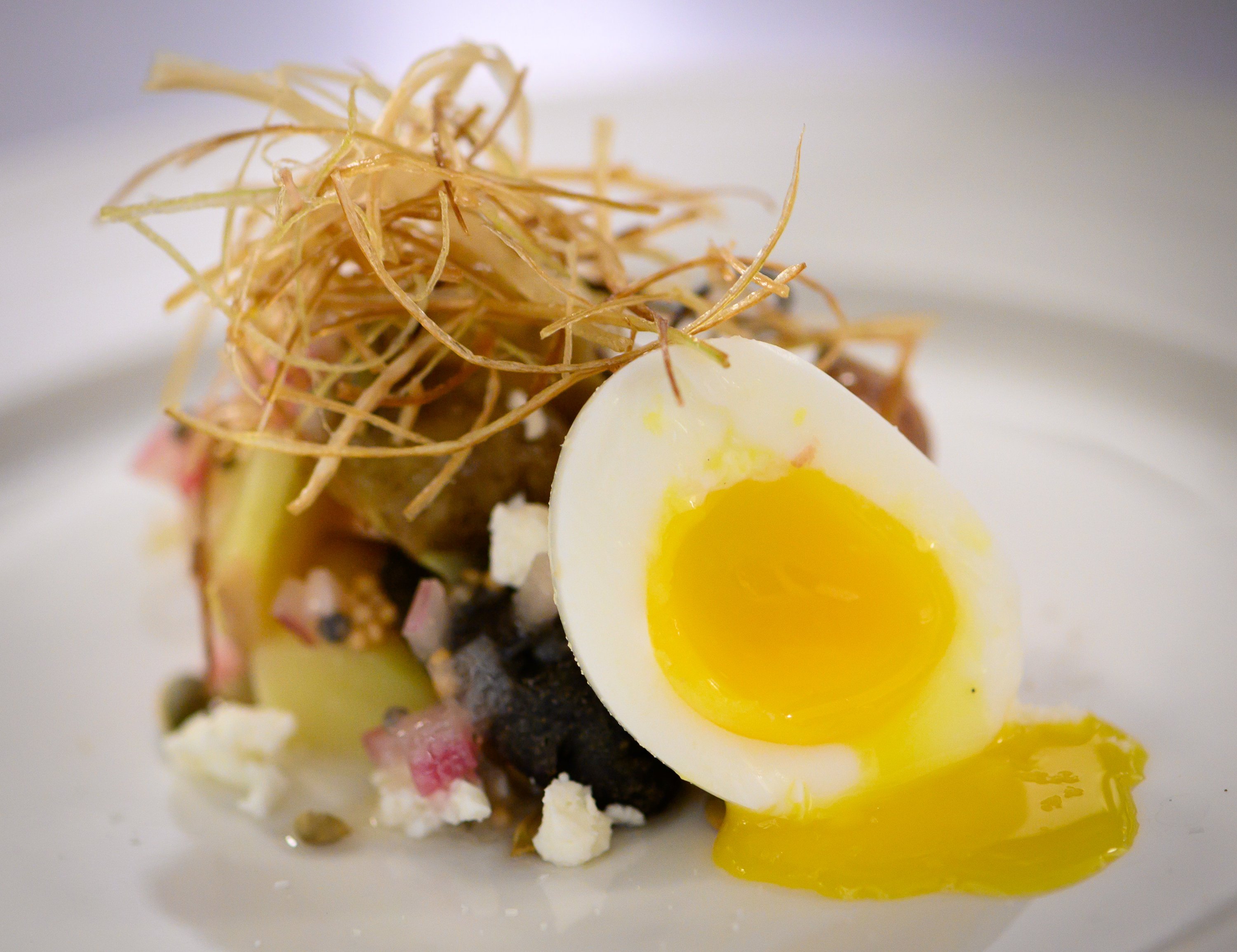 The Culinary Institute of America awards the Associate in Applied Science (AAS) in culinary arts upon completion of the required curriculum. The CIA's degree program provides students with the broadest culinary arts education possible. It exposes them to the different styles and experiences of the college's faculty members, acquaints them with a wide variety of foodservice equipment, and prepares them for whatever area of the foodservice and hospitality industry they choose to enter.
The Culinary Institute of America awards the Associate in Applied Science (AAS) in culinary arts upon completion of the required curriculum. The CIA's degree program provides students with the broadest culinary arts education possible. It exposes them to the different styles and experiences of the college's faculty members, acquaints them with a wide variety of foodservice equipment, and prepares them for whatever area of the foodservice and hospitality industry they choose to enter.
The Associate in Applied Science (AAS) degree program in culinary arts teaches students what works in the front and the back of the house and why it works, along with analytical, technological, and effective communication skills, to prepare them for such entry-level positions as chef, caterer, dining services administrator, food researcher, kitchen supervisor, food writer, and more, as well as similar mid-level positions that come with more experience. A representative list with Bureau of Labor Statistics Standard Occupational System codes provides more information.
To qualify for the degree, culinary arts majors must successfully complete the entire course of study: four on-campus semesters of about 15 weeks each, plus one externship semester of a minimum of 14 consecutive weeks or 550 hours during which students are employed in the foodservice industry at CIA approved sites. Students need to earn a total of 67 credits and also need to maintain a grade point average of at least 2.0 to complete the associate degree. Full-time students can complete the program in 22 months.
In addition, to be considered for a degree, CIA students must (a) receive National Restaurant Association (NRA) ServSafe® certification upon completion of the Introduction to Food Science course and (b) adhere to food safety certification standards throughout the curriculum.
Program Learning Outcomes
The mission of the School of Culinary Arts program is to prepare students to become leaders in the food world by providing the world's best professional culinary education. The program emphasizes proficiency in traditional and contemporary culinary techniques, basic baking and pastry competencies, and food and beverage service methods. Students will learn the interpersonal skills and management principles needed for success in the foodservice industry. Additionally, students will acquire a series of general education skills at the core of most college programs, including critical thinking, information literacy, problem solving techniques, quantitative literacy, and the foundations for lifelong learning.
- Students will demonstrate skill in culinary methods and techniques, including culinary knowledge, and organization (mise en place*).
- Students will apply scientific knowledge and principles of nutrition, product knowledge, ingredient functionality, sanitation, and food safety.
- Students will demonstrate strong teamwork and collaboration skills while exemplifying professionalism and leadership.
- Students will apply basic management principles and practice service techniques and use of service equipment.
*Definition: Mise en Place a culinary process in which ingredients are prepared and organized (as in a restaurant kitchen) before cooking. At the CIA this refers not only to equipment and ingredients but also to a state of mental preparedness and a way of life.
Instructional Programs and Schedule
While enrolled in the AAS degree program at the Texas campus, students will be assigned to small instructional groups which integrate theory and practice.
Within each group, students will actively participate in learning assignments related to the cleaning and sanitizing of laboratory areas and equipment. Personal hygiene and proper food handling procedures are emphasized to minimize potential food contamination. Strict sanitation and safety regulations are practiced and enforced. This reflects the college's concern that such practices be an integral part of all foodservice and hospitality operations, for the health and safety of personnel and guests alike.
The college's academic schedule of in-person, online, and hybrid courses ensures that students will progress from basic to intermediate to advanced subject matter in proper sequence. The CIA reserves the right to modify course sequence, content, and offerings.
